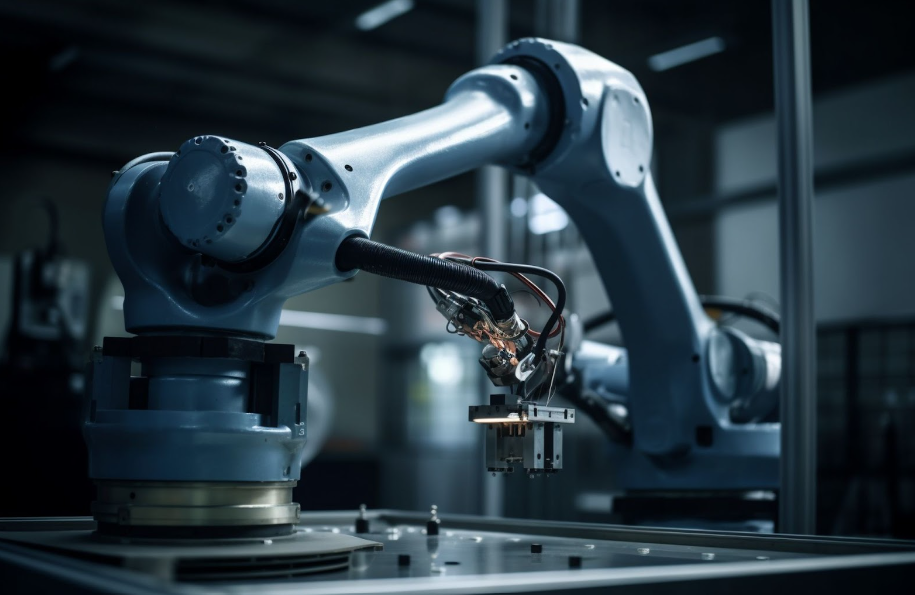Driving the Future: How Electric Vehicle Manufacturing is Evolving
 The automotive industry is experiencing a profound transformation, driven by the global shift toward sustainability and environmental consciousness. One of the most significant developments in this sector is the rapid growth of the electric vehicle (EV) market. As consumers embrace electric cars, the importance of manufacturing in the EV industry becomes increasingly evident. In this blog, we will explore the evolving role of manufacturing, with a specific focus on low volume production and validation processes in the electric vehicle industry.
The automotive industry is experiencing a profound transformation, driven by the global shift toward sustainability and environmental consciousness. One of the most significant developments in this sector is the rapid growth of the electric vehicle (EV) market. As consumers embrace electric cars, the importance of manufacturing in the EV industry becomes increasingly evident. In this blog, we will explore the evolving role of manufacturing, with a specific focus on low volume production and validation processes in the electric vehicle industry.
The Electric Vehicle Industry Landscape
The electric vehicle industry has witnessed remarkable growth in recent years, revolutionizing the automotive landscape. Electric cars are no longer a niche market; they are becoming a mainstream choice for consumers. This shift is driven by various factors, including concerns about climate change, government incentives, and advances in battery technology.
Statistics and trends underscore the significance of the electric vehicle industry. Sales of electric vehicles have surged worldwide, with major automakers investing heavily in EV production. Countries are setting ambitious targets to phase out internal combustion engine vehicles and promote electric mobility.
Manufacturing’s Crucial Role in Electric Vehicle Production
Manufacturing plays a central role in the production of electric vehicles. Unlike traditional internal combustion engine cars, EVs have complex components and systems that require precise assembly and integration. Battery packs, electric motors, and power electronics are at the heart of an electric vehicle, and their assembly demands a high level of precision and expertise.
Moreover, the manufacturing of electric vehicles involves intricate supply chain management, as components and subsystems often come from various suppliers and need to be seamlessly integrated during assembly. This makes efficient manufacturing processes even more critical.
Low Volume Production in Electric Vehicle Manufacturing
While high-volume production remains essential in the automotive industry, low volume production is gaining prominence in the electric vehicle sector. Low volume production refers to the manufacturing of a smaller number of vehicles compared to traditional mass production.
Low volume production in electric vehicle manufacturing offers several advantages. It allows manufacturers to respond quickly to changing market demands and produce niche or specialized EV models. This flexibility is crucial in the dynamic electric vehicle market, where consumer preferences and technological advancements evolve rapidly.
Furthermore, low volume production can be cost-effective for startups and smaller companies entering the EV industry. It reduces the initial investment required for large-scale manufacturing facilities and minimizes the risks associated with overproduction.
Validation Processes in Electric Vehicle Manufacturing
Validation processes are integral to ensuring the quality and safety of electric vehicles. These processes encompass a series of tests and assessments conducted throughout the manufacturing and development stages of an EV. Validation aims to confirm that the vehicle meets safety standards, performs as intended, and is reliable under various conditions.
Validation processes in electric vehicle manufacturing include:
- Component Testing: Rigorous testing of individual components, such as batteries, motors, and control systems, to ensure their reliability and safety.
Functional Testing: Assessing the overall functionality of the electric vehicle, including its electrical systems, charging capabilities, and drivetrain performance.
- Environmental Testing: Subjecting the EV to extreme environmental conditions to evaluate its performance in diverse climates and situations.
Crash Testing: Conducting crash tests to determine the vehicle’s safety in accidents and collisions.
- Durability Testing: Evaluating the long-term durability and reliability of the vehicle through extensive road testing.
These validation processes are essential to gain regulatory approvals and instill confidence in consumers. They help manufacturers identify and rectify potential issues before the vehicles reach the market.
Innovations and Evolutions in Electric Vehicle Manufacturing
The evolution of electric vehicle manufacturing is marked by ongoing innovations and advancements. Automation and artificial intelligence (AI) are playing a pivotal role in streamlining production processes. Robotics and AI-driven quality control systems enhance efficiency and precision while reducing human error.
Sustainable practices are another key focus in the electric vehicle manufacturing industry. Companies are increasingly adopting eco-friendly manufacturing processes, utilizing renewable energy sources, and reducing waste. Sustainable practices align with the environmental goals of electric vehicle production and appeal to environmentally conscious consumers.
Future Outlook
The future of electric vehicle manufacturing holds promise and challenges. As technology continues to advance, electric vehicles are expected to become more affordable, with longer ranges and faster charging times. Battery technology will remain a critical factor in shaping the industry, with ongoing efforts to increase energy density and reduce costs.
Challenges include addressing infrastructure gaps for EV charging, ensuring a sustainable supply of raw materials for batteries, and meeting stringent emissions regulations. Manufacturers will need to adapt to these challenges while staying innovative and competitive.
In conclusion, the electric vehicle industry is undergoing a remarkable transformation, and manufacturing plays a pivotal role in this evolution. The shift toward low-volume production and stringent validation processes underscores the commitment to quality and innovation within the sector. As electric vehicles become increasingly prevalent, the industry’s ability to adapt and innovate in manufacturing will determine its long-term success. The future of electric vehicle manufacturing is exciting, with the promise of more efficient, sustainable, and accessible electric vehicles for consumers worldwide.
Ready to take your manufacturing capabilities to the next level and be part of the electric vehicle revolution? Contact us now to discover how we can collaborate and drive the future of electric vehicle manufacturing together.

